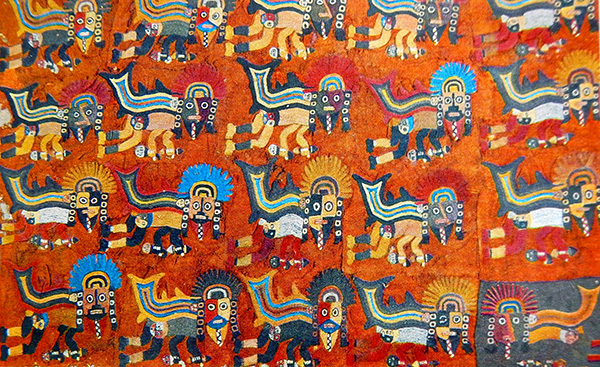Pagine
Condividi e segnala
Tag
- Althusser
- Antropologia
- Baumgarten
- Bourdieu
- Conceivability of Nothingness
- Conciliation
- corpo
- Derrida
- Dialectics
- Difference
- distinzione
- Europe
- Expression
- giudizio
- Grace
- Habitus
- Heidegger
- Hobbes
- Kant
- linguaggio
- Lyotard
- marxismo
- Medieval Aristotelianism
- Metaphysics
- Nature
- Negative
- Nichts
- nihil
- Nihilism
- nihil negativum
- nihil privativum
- Non-identical
- Nothing
- Nothingness
- onore
- politica
- postmoderno
- pratica
- riconoscimento
- Smith
- solitudine
- Sovranità
- Spinoza
- Thomas Aquinas
- Western Ontology
-
Articoli recenti
Link
Archivi categoria: Varia
Una relazione pericolosa. La Digital History, tra innovazione metodologica e didattica
Giovanni Carosotti
Giovanni Carosotti: Liceo Virgilio Milano (giovanni@carosotti.it; ORCID: 0009- 0002-7732-0339).
A Dangerous Liaison. ‘Digital History’ between methodological and didactic innovation
Abstract: Digital History consistently puts forward proposals for the methodological rethinking of the historical discipline, according to the new informational reality. The debate is still in the making and, despite some proposals to this effect, it is doubtful that it can already affect the intellectual act with which the historian contributes to the advancement of disciplinary research. With the aim of legitimising their own positions, in some studies the supporters of Digital History have claimed to … Continua a leggere
Pubblicato in NUMERO 16, Varia
Lascia un commento
“L’anima della ragione strategica”. Bensaïd e la costituzione processuale del soggetto
Simone Coletto
Simone Coletto: Università degli Studi di Pavia (simone.coletto01@universitadipavia.it; ORCID: 0009-0006-9820-7940).
“The Essence of Strategic Reason”. Bensaïd and the Processual Constitution of the Subject
Abstract: In this text I explore the problem of the constitution of the social subject in the work of Daniel Bensaïd, in the light of his reflections on the “discordance of the times”. The overcoming of a monorhythmic conception of History, or in other words of a linear and staged conception of History, allows the “militant philosopher” – as he liked to call himself – to also rethink the coordinates within … Continua a leggere
Pubblicato in NUMERO 16, Varia
Lascia un commento
Forme e individui. La critica di Luporini al marxismo strutturalista
Rosario Croce
Rosario Croce: Scuola Normale Superiore, Pisa (rosario.croce@sns.it; ORCID: https://orcid.org/0000-0003-2668-1097).

Forms and Individuals. Luporini’s Critique of Structural Marxism
Abstract: This paper examines the relationship between Luporini’s Marxism and structuralism, focusing primarily on the anti-historicist aspects of his reflection (nature, subjectivity, and anti-empiricism, §§ 2-3). It aims to illustrate the developments of Luporini’s reflection after the engagement with Althusser and structural linguistics (§ 4), by identifying two distinguishing features of Luporini’s account of the concepts of form and structure: i.e., the importance of (non-historical) dialectics and the constitutive role of human agency in shaping and reproducing … Continua a leggere
Pubblicato in NUMERO 16, Varia
Lascia un commento
Bisogni repressi e deformazione del testo pubblico. Habermas sulla psicoanalisi come risorsa per la Teoria critica della società
Luca Micaloni
Luca Micaloni: Sapienza Università di Roma, Dipartimento di Scienze Politiche (luca.micaloni@uniroma1.it)

Repressed Needs and the Deformation of the Public Text. Habermas on Psychoanalysis as a Resource for Critical Social Theory
Abstract: In this paper I will discuss an important passage that led Jürgen Habermas, at the end of the 1960s, to turn to psychoanalytic categories as a reservoir of methodological and diagnostic resources for the Critical Theory of Society. Firstly, I will show how Habermas conceives of psychoanalysis as a relational process designed to repair damaged symbols and to enable the subject to acquire … Continua a leggere
Pubblicato in NUMERO 16, Varia
Lascia un commento
Le radici dell’Umanesimo e la guerra nei Politicorum libri sex di Giusto Lipsio
Tiziana Provvidera
Tiziana Provvidera: University College London (t.provvidera@ucl.ac.uk; orcid: 0009-0008-6169-7709).
 Anonimo – Testa del filosofo Giusto Lipsio
Anonimo – Testa del filosofo Giusto Lipsio
The roots of Humanism and Warfare in Justus Lipsius’s ‘Politicorum libri sex’
Abstract: Justus Lipsius (1547-1606) was among the most famed intellectuals in his time, and his thought stood at an important crossroads, incorporating both humanist and late Renaissance traits and precursors of the early modern age. Through the analysis of some passages from the Politica (1589), the contribution aims to underline some significant connections with the tradition of early Renaissance writers, particularly Petrarch and Machiavelli. Although not a … Continua a leggere
Pubblicato in NUMERO 16, Varia
Lascia un commento
L’epistemologia politica contemporanea: un’analisi critica
Lorenzo Rustighi
Lorenzo Rustighi: Università degli Studi di Padova, FISSPA (lorenzo.rustighi@unipd.it; ORCID: 0000-0002-7962-3774).

Contemporary Political Epistemology: A Critical Analysis
Abstract: This paper critically engages with some of the most relevant theoretical trends in contemporary political epistemology, focusing especially on epistemic democracy, epistocracy, and lottocracy. After briefly underscoring how these theories, although very different, aspire to ground the legitimacy of political obligation upon the truth value of deliberative processes, this contribution suggests that they all depend on generic assumptions related to the mainstream concept of democracy, without exposing the latter, in turn, to any kind of epistemological inquiry … Continua a leggere
Pubblicato in NUMERO 16, Varia
Lascia un commento
Milieux historiques’, storia, tempo e politica: Marx tra i “quaderni etno-antropologici” e la lettera a Vera Zasulič (1879-1882)
Elia Zaru
Elia Zaru: Università di Bologna (elia.zaru2@unibo.it; Orcid: 0000-0002-2576- 2138).
‘Milieux historiques’, History, Time, and Politics: Marx between the “Ethno-Anthropological Notebooks” and the Letter to Vera Zasulich (1879-1882)
Abstract: This essay aims to show the presence of a theory of plural temporality in the so-called “last” Marx. It also seeks to highlight how such a theory contrasts both the teleological conception of history and the idea of the revival of the archaic as a possibility for future communism. The first section examines the concept of “milieux historiques” as it appears in the 1877 letter Marx … Continua a leggere
Pubblicato in NUMERO 16, Varia
Lascia un commento



